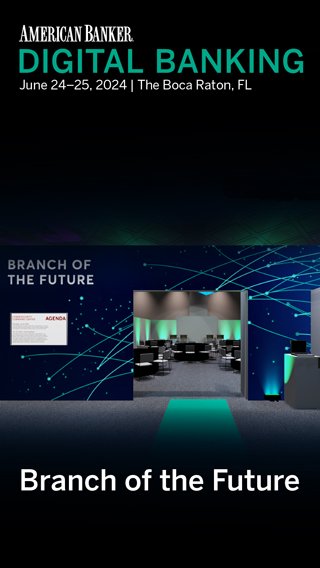Lessons in scaling a commerce and fintech platform
/From Alex Lazarow, an author, speaker, global venture capitalist, and contributor for The FR. His debut book Out-Innovate: How Global Entrepreneurs – from Delhi to Detroit – Are Rewriting the Rules of Silicon Valley was published by HBR Press. Alex is the Founder & Managing Partner of Fluent Ventures, is a Kauffman Fellow, and a CFR Term Member.
I’m back from a whirlwind two-week trip to London, Paris, Berlin and Madrid.
In Madrid in early June, I led a fireside chat at the South Summit with JC Glancy, the unicorn founder of ZenBusiness, a former portfolio company of mine at a previous firm. JC is also one of our venture partners at Fluent, the VC fund I co-founded. Founded in 2017, ZenBusiness stands at the intersection of commerce and fintech. It offers a suite of tools to help small businesses get up and running; including legal paperwork; operating agreements; accounting assessments and tax filing support; and money management.
Here are a few takeaways for me from JC’s talk on how ZenBusiness scaled over the years:
Personal passion: ZenBusiness was a long 10-year journey to seemingly becoming an overnight success. JC’s passion is helping small business owners, like his father, make their lives easier. This kept him going throughout the journey.
Surround yourself with partners: So few founders I know hire their own boss. Early on in the ZenBusiness story, JC had the opportunity to bring in Ross Buhrdorf, the founding CTO of HomeAway, as an investor, and ultimately as CEO. As JC said, “You can either be rich or be king.” JC jumped at the chance to grow his founding team and get a mentor along the way.
Diversity starts with the top: ZenBusiness is nearly 50% female. In JC’s view, this starts with the leadership team which has a similar ratio.
Cross-sell is hard: “Being a platform is like being a mall with many doors.” You need to have a reason for customers to keep coming back to you. In ZenBusiness’ case, they are the all-in-one platform for SMBs, starting at the point of formation.
Fintech is a key enabler to expand customer long-term value: ZenBusiness leverages fintech to scale their LTV. It also helps lower churn. “Customers that use banking churn at half the rate to customers that do not.”
Remote is powerful but at the beginning, being close together was powerful. Being remote lets you attract the best talent from anywhere. “A remote-first mindset while creating opportunities to work together in person is the way to go.”
One of the reasons I like models like ZenBusiness so much is the opportunity to support small businesses. I’m including some insights drawn from a previous Forbes column I wrote on the role of small businesses in the U.S.
There are more than 33 million small and medium-sized businesses in the US, accounting for more than 99% of US businesses, and the number is growing. The pandemic has shown us two simultaneous and seemingly opposite truths about this segment.
1. SMBs are fragile — massive external shocks can cause devastating effects.
2. SMBs as a sector are the future — they have proven to be one of the most resilient aspects of our economy.
While the pandemic has certainly been one of the most challenging times for SMBs, a recent survey from Facebook, the World Bank and the OECD show that most (57%) remain optimistic and resilient when it comes to the the future of their businesses with only 10% expecting to close should current conditions persist.
The growth in SMBs across the country in the last year has been unexpected and is bringing significant benefits. But to support them, innovation needs some new tools.
Let’s start with the importance of the sector.
SMBs are critical to the US economy.
Entrepreneurship and small business creation is the bedrock of the United States economy, with new small businesses responsible for all net new job creation in this country—a vital component that has proved more resilient in recessions and as we continue to navigate the COVID-19 crisis.
While many small and medium sized businesses stay small, some do experience significant scale. Companies that were once small businesses or startups are responsible for over 40% of the U.S. publicly traded companies, 60% of market capitalization and remarkably 80% of R&D. During the pandemic, while hundreds of thousands of SMBs were going bankrupt, hundreds of thousands of new businesses were being formed at the same time.
What SMBs look like is shifting for the better.
SMBs are not only a tool to create resilience, but the small businesses of today are pointing to a more inclusive future. According to data from ZenBusiness, a growing number of new businesses are women-owned. They also defy age stereotypes. Despite common perceptions of new business creation strictly coming from younger generations, the number of entrepreneurs over the age of 65 is also seeing a huge jump.
SMB and startup creation is also showing that innovation is moving outside traditional sectors and scaling globally. Today, there are more than 480 startup ecosystems around the world.
The shift toward SMBs will be further accelerated by demographic shifts. According to research from GoDaddy, a third of millennials have a small business or side hustle (20% of which is their main income). Crucially, over 80% believe they would be more satisfied working as an entrepreneur than for someone else.
It goes without saying that starting and running a new business is extremely challenging. ZenBusiness research highlights some of the top needs reported by SMBs with more than 50% indicating that they would like more support on core functions including expense tracking, website development and social marketing. Even more foundational support is needed, with 75% saying that they would like more tactical and educational content.
Fortunately, there has been a Cambrian explosion of software looking to capitalize on these trends and address the emerging needs of new and existing SMBs and startups.
These tools span the gamut. Some platforms offer all in a single platform to manage an e-commerce or microbusiness respectively. Others are targeting specific pain points to manage and grow a business, including expense management, financing, insurance and payments. What’s more, a wide range of broader enablement software tools are being built, making it easier than ever to start a new business and benefit from the same economies of scale of the largest players.
We need SMBs more than ever—so let’s enable, encourage and accelerate their development.








